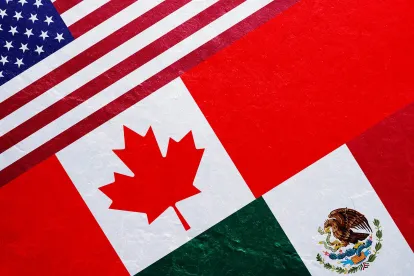In 2020, leaders of Canada, the United States, and Mexico signed the United States Mexico Canada Agreement (USMCA) which, for the first time in a US free trade agreement, includes a ban on imports of products produced using forced labor.
The US has acted decisively to uphold their USMCA obligations, including through forced labor legislation, i.e. the Uyghur Forced Labor Prevention Act (UFLPA). As we have previously reported, US Customs and Border Protection (CBP) statistics show extensive enforcement of the US forced labor import bans, particularly in the electronics, textile, and industrial and manufacturing materials industries. We track the US forced labor enforcement efforts on our website.
Canada and Mexico have taken some time to act, however they have recently proposed and implemented laws that may expand the scope of supply chain due diligence requirements and enforcement of forced labor bans.
Canada Forced Labor Initiatives
Canada has technically banned the importation of goods produced with forced labor since July 2020. Memorandum D9-1-6 announced that Canada Border Services Agency (CBSA) will re-classify the banned import as a prohibited good under tariff provision 9897.00.00. As a practical matter, very few imports have been detained by CBSA and the only publicly reported detained shipment was released.
New Due Diligence Reporting Law
Reports indicate that CBSA does not have the manpower or resources to identify goods produced with forced labor or to manage a volume of detentions, and as a result Canada is trying a different track: supply chain due diligence reporting requirements.
In November 2021, Canada’s Parliament began its considerations of S-211, “An Act to enact the Fighting Against Forced Labour and Child Labour in Supply Chains Act and to amend the Customs Tariff,” which is expected to pass shortly. The bill does not mirror US import ban efforts exactly, although some provisions are similar to the California Transparency in Supply Chains Act. S-211 would require entities covered by the law to submit detailed annual reports regarding their activities and supply chains, forced labor and due diligence policies, and measures taken to reduce the risk of child or forced labor in their global supply chains, among other information. These online annual reports must be approved by the entity governing body (e.g., board of directors), which effectively requires senior leadership to acknowledge and approve of the entity’s diligence efforts and labor policies. The reports will be posted to a government electronic registry. If S-211 passes and receives Royal Assent this year, the first reports will be due on or before May 31, 2024
Who Must Report?
Many companies that operate in Canada will be impacted by S-211’s reporting requirements, which covers entities that either:
- produce, sell, or distributes goods in Canada;
- import goods into Canada that are made outside Canada; or
- controls an entity that is engaged in 1 or 2.
In addition, covered entities are either listed on the Canadian stock exchange, covered by the implementing regulations, or broadly has a place of business, does business, or has assets in Canada and satisfies two of the following conditions in the last two financial years: (1) at least C$20 million in assets, (2) at least C$40 million in revenue, and (3) employs at least 250 employees on average.
Other Important Provisions
Equally important measures include extending Canada’s current import ban on goods produced with “forced labor” and “prison labor” to goods “mined, manufactured or produced wholly or in part” with “child labor”. The proposed law would also give new enforcement powers to the Minister of Public Safety and Emergency Preparedness, including powers of search, inspection and seizure of documents and evidence. Significantly. in its current version, S-211 would also assess penalties for failure to comply with reporting obligations and adds new personal corporate liabilities for covered corporate directors and officers.
Additional Canada Forced Labor Laws on the Horizon
On March 29, Canada’s Deputy Prime Minister and Minister of Finance introduced Canada’s 2023-2024 budget, in which she underscored the government’s commitment to “friendshoring” Canada’s economy with like-minded trading partners. To that end, the government’s budget announced its intention to introduce legislation by 2024 to eradicate forced labor from Canadian supply chains and strengthen the import ban on goods produced using forced labor. No further details have yet been made available, but we continue to track these developments.
Mexico Forced Labor Import Ban
Mexico has also recently taken steps to comply with its forced labor obligations under USMCA. Mexico recently announced a resolution to ban the importation of goods produced with forced labor effective May 18, 2023. This resolution provides a process for Mexican citizens or entities to submit a petition to prohibit the import of goods produced with forced labor. The petition will be reviewed and may be investigated by Mexico’s Ministry of Labor and Social Welfare. The government of Mexico can also independently initiate an investigation. Importers of the subject goods will have the opportunity to submit information to rebut the allegations. The decision must be made within six months after the petition is filed, which can be extended to one year. A determination that forced labor is used will result in inclusion on the Ministry’s website and an import ban on the covered goods, effective 90 days after the decision is published.
Companies Must Prepare for Increased Enforcement in North America
Clearly, 2023 and 2024 will be pivotal years for companies in North America reliant on global suppliers. For company executives striving to incorporate these new compliance requirements for North American markets, understanding the differences between Canada and Mexico’s actions and those from Washington will be important. Preparation for these new requirements is of particular importance as the USMCA countries increase enforcement and the new laws impose penalties and possible personal liability.
In the interim, and as we have noted in earlier posts, many companies have chosen to incorporate the higher (i.e., United States), compliance requirements as a means to safeguard their access to the US market and as a preventive first step to comply with Canada and Mexico’s forthcoming requirements.





 />i
/>i

